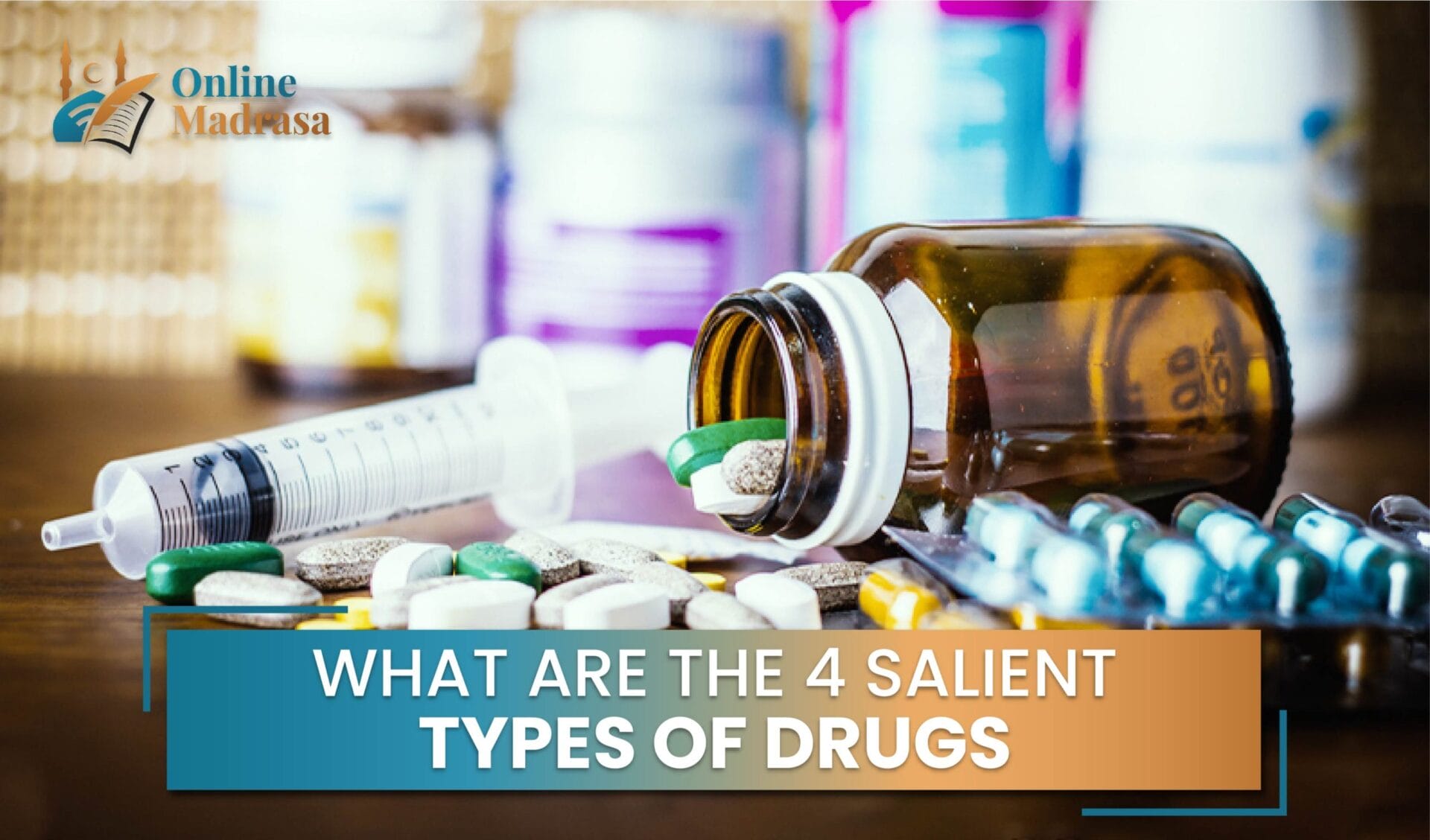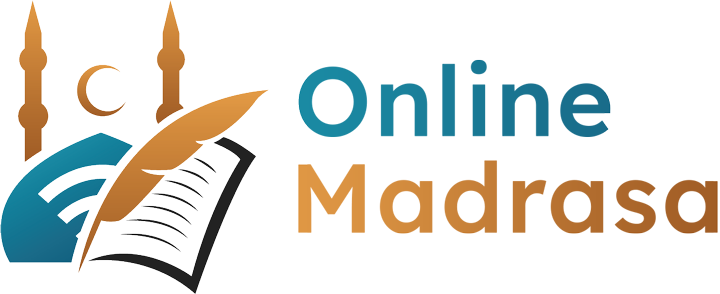Blog
What are the 4 salient types of Drugs?

4 Salient Types of Drug
Drugs impact the way your mind and bodywork, altering how you feel, think, and act. People use drugs for a number of reasons and in a variety of ways. Let us explore the 4 salient types of drugs.
We cannot find any direct proof on this topic throughout history because drugs were not known during the advent of Islam. In general, it has been stated that, because drug consumption causes significant losses, it is prohibited (Haram) unless medical crises and necessities require it. Secondly, buying and selling it is prohibited unless it provides sensible, legal benefits, such as in the creation of a medicine. This type of usage must be strictly supervised and controlled by the authorities.
What are the 4 types of drugs?
Knowing their type is very important so that you know what you are dealing with and can get immediate help if you have been exposed to any of them. The four types of drugs are as follows,
- Stimulants
- Depressants
- Opioids
- Hallucinogens
Stimulants
Stimulants are a type of medication that causes the body to become more active. These medications, sometimes known as “uppers,” are commonly overused owing to their performance-enhancing and uplifting effects. Stimulant abusers typically perceive increased energy and focus. Moreover, they are usually caffeine or nicotine derivatives.
Stimulant medications stimulate the central nervous system of the organism. The body’s systems respond with increased respiration rates and faster pulse rates when response times between brain neurons grow. Caffeine or nicotine can give you a surge of energy, but when your body gets biologically dependent on the material, it can become addictive. While caffeine and nicotine are legal to purchase, other extremely addictive and hazardous stimulants like ecstasy and speed are only available illegally.
Depressants
Depressants, such as alcohol, are widely available and used by adults on a daily basis. Despite their widespread accessibility, they might become addictive and have negative consequences if used excessively. Just like stimulant medications, they have an effect on the central nervous system, delaying the transmission of information between the brain and the body.
They have the capacity to alter focus and coordination. In addition, they impair a person’s capacity to react to unexpected events. They can make a person feel calmer and less inhibited in modest dosages.
They can cause sleepiness, vomiting, unconsciousness, and death in heavy dosages. If you consume too much alcohol, you risk developing alcohol poisoning and dying.
There is a range of other depressants accessible today, apart from alcohol. Many of these medications are at your local pharmacy or doctor’s office. Depressants may include, for example:
- Luminal
- Xanax
- Mebaral
- Valium
- Ativan
The above-mentioned depressants also have a positive effect. They will help you feel calm, relaxed, and mellow, as well as reduce anxiety and nightmares. However, Allah states in the Quran,
“O ye who believe! Strong drinks and games of chance and idols and divining of arrows are only an infamy of Satan’s handiwork. Leave it aside in order that ye may succeed. Satan seeketh only to cast among your enmity and hatred by means of strong drink and games of chance, and turn you from the remembrance of Allah and from (His) worship. So will ye not then abstain?”
Al-Qur’an 5:90-91
Opioids
Opioids are a group of medications that reduce or eliminate pain. Many doctors are legally permitted to give opioids as pain relievers. Vicodin and OxyContin are examples of opioids. These medicines are highly addictive, and they can lead to prescription drug misuse. These substances, like heroin, can lead to even more serious addictions.
Opioid drugs, when taken as advised by your doctor, are a safe way to manage extreme pain, such as the pain you might feel after surgery. When drugs are administered incorrectly, however, there are hazards.
When doctors prescribe opioids, they must keep in mind how addictive these drugs can be, as well as how they might alter your mood and cognition. Due to the contaminants commonly found in street heroin and the possibility of taking heroin laced with fentanyl, which can lead to death, those who advance to or have a heroin addiction are at a high risk of mortality.
Opioids function by engaging with opioid receptors in your cells to relieve pain. Opioids can be extracted from the poppy plant, such as morphine (Kadian, Ms. Contin, and others), or produced in a lab, such as fentanyl (Actiq, Duragesic, others).
When opioid drugs pass through your bloodstream and bind to opioid receptors in your brain cells, the cells send out signals that reduce your pain perception while increasing your pleasure.
Hallucinogens
Hallucinogens are medicines that cause considerable distortions in reality by altering the user’s thought processes and perception. They too, act on the central nervous system and brain. These medications have a very different effect on one’s perception than many other sorts of drugs. To many, the effects of these medications indicate new and even extended states of consciousness, and some people indeed encounter synesthesia (mixed sensory experiences, such as seeing sounds or hearing colors).
LSD is the most widely consumed hallucinogen. It promotes the production of serotonin, a neurotransmitter in the brain. Your mood can swing wildly when your serotonin levels rise quickly, and your ability to absorb and comprehend information swings as well. As serotonin levels rise without being regulated, LSD and hallucinogens can enable the consumer to perceive things that are not there.
Hallucinations, an altered sense of time, and dissociative experiences (not feeling linked to one’s body or reality) are all frequent side effects of these medicines.
Which Drugs Are Illegal or Haram?
Illegal or non-permissible substances are those that are regarded as intoxicants. They are those that are damaging to the body, mind, spirit, or society.
In this aspect, the Holy Prophet (PBUH) stated that not just Khamr (wine or alcohol) is haram in Islam, but that other intoxicating medicines are also haram in Islam.
Hence, the following drugs are considered haram,
- Alcohol or wine
- Marijuana
- Cocaine
- Opium
- Stimulant
- Narcotics
- Hormone and metabolic modulator
- Cannabinoids
- Beta-2 agonist
- Hashish
The Right Pleasure and Peace
Our pleasure and peace lie within the realms of Islam. As man’s understanding improves, he discovers that some things that he considers pleasant are actually damaging to him, while other things he considers unwanted are truly necessary for his development.
A child dislikes medicine because of its unpleasant taste, but when he understands that this sour medicine is the answer to regaining his health, he swallows it without hesitation. When a young man living a promiscuous lifestyle learns the damage he is causing to his character, family, and society as a whole, his reason no longer allows him to keep going down that sinful path.
The pleasures of a healthy body, a good character, a stable family, and a pure society vastly surpass the fleeting ‘false pleasures’ that stand in their way. And the Qur’an does a wonderful job of presenting this concept:
‘…It may be that you dislike something, which is good for you, and it may be that you love something, which is bad for you…’
Al-Qur’an 2:216
Thus, in the pyramid of pleasures, lesser and weaker pleasures must be surrendered to obtain higher and stronger ones. But how can man, a constantly evolving being whose ideas change as he matures, choose which pleasures to forego for the sake of others?
Man has only one life, one chance to achieve and maintain excellence. So he must decide whether he wants to waste his chances or follow Islam, with its brilliant Shari’ah.
Conclusion
One of the most common causes of self-destructive and life-destroying actions is drug addiction. Allah Almighty says: “And do not cast yourselves with your own hands into destruction” (2:195). Anyone who is addicted to the temporary pleasures of drugs can still return to the path of Allah, it is only a matter of personal choices.
